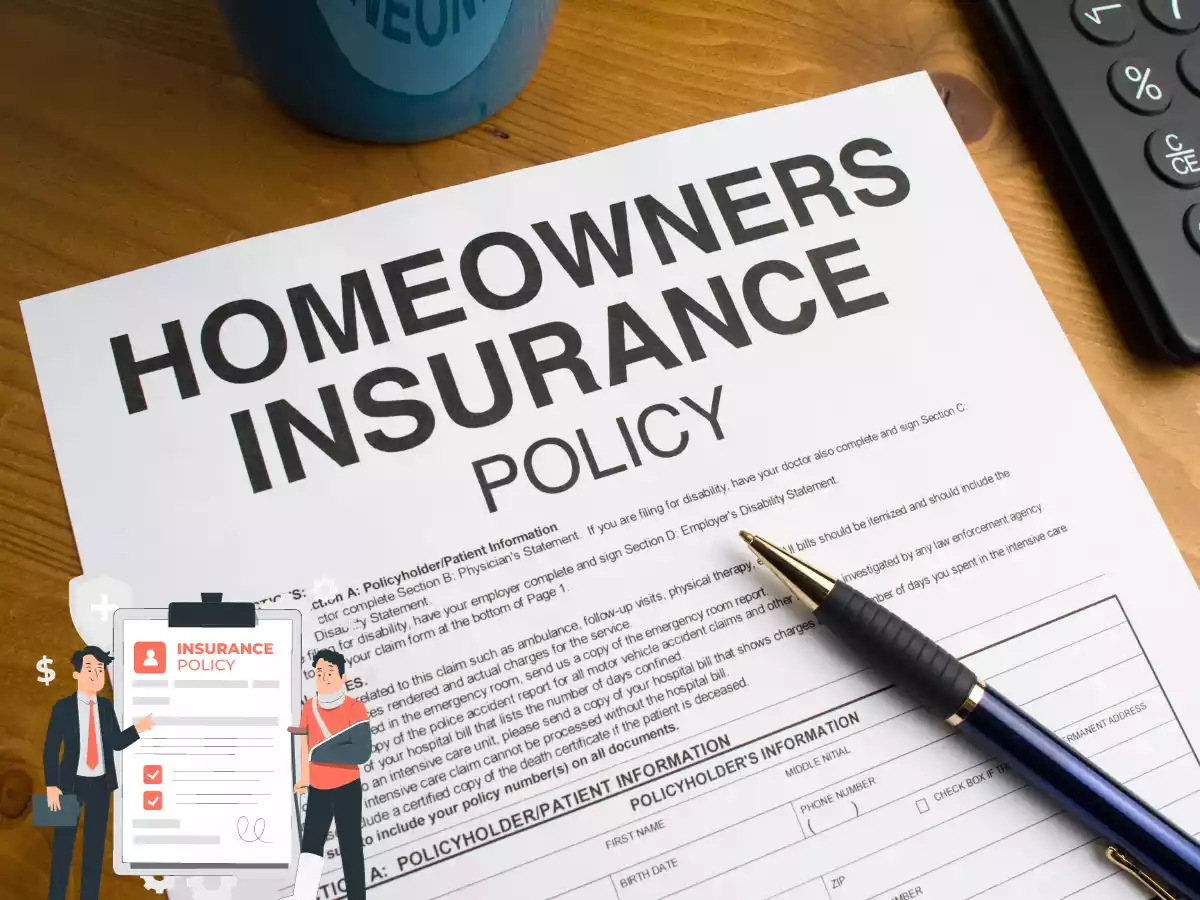Buying a home is a significant milestone in one’s life, and it often involves securing a mortgage loan. When you take out a mortgage, your lender may require you to purchase homeowners insurance. In this article, we will explore the circumstances in which lenders typically mandate homeowners insurance and the reasons behind this requirement.
Understanding Homeowners Insurance
What Is Homeowners Insurance?
Homeowners insurance, often referred to as hazard insurance, is a type of insurance policy that provides financial protection to homeowners in the event of damage to their property or personal belongings.
This insurance policy offers coverage for various perils, including fire, theft, vandalism, and natural disasters. It is designed to safeguard homeowners from unexpected financial losses that could result from these events.
How Does Homeowners Insurance Work?
Homeowners insurance operates on the principle of risk-sharing. Policyholders pay regular premiums to the insurance company, and in return, the insurer agrees to cover the costs associated with covered losses or damages.
When an insured event occurs, the homeowner can file a claim with their insurance provider to receive compensation for repairs or replacements, subject to the terms and conditions of the policy.
Types of Coverage in Homeowners Insurance
There are several types of coverage within a homeowners insurance policy:
- Dwelling Coverage: This covers the structural damage to your home, including the walls, roof, floors, and built-in appliances.
- Personal Property Coverage: This covers the replacement or repair of personal belongings, such as furniture, electronics, and clothing, if they are damaged or stolen.
- Liability Coverage: This provides protection in case someone is injured on your property, and you are held liable for their medical expenses or legal fees.
- Additional Living Expenses (ALE) Coverage: ALE coverage helps with temporary living expenses if your home becomes uninhabitable due to a covered event.
When Lenders Require Homeowner’s Insurance
When Is Homeowners Insurance Required by Lenders?
Lenders typically require homeowners insurance when:
- Taking Out a Mortgage: If you are financing the purchase of your home with a mortgage loan, the lender will likely make homeowners insurance a mandatory condition of the loan.
- Refinancing a Mortgage: If you decide to refinance your existing mortgage, your lender may require you to maintain or obtain homeowners insurance as a part of the refinance agreement.
Why Do Lenders Require Homeowners Insurance?
Lenders require homeowners insurance for several important reasons:
- Protecting Their Investment: When you take out a mortgage, your lender has a significant financial stake in your property. Homeowners’ insurance safeguards their investment by ensuring that the property is adequately protected against potential risks.
- Ensuring Property Repairs: In the event of damage to your home, homeowners insurance can provide funds for repairs. This ensures that the property maintains its value, which is crucial for the lender’s collateral.
- Mitigating Risk: Lenders want to minimize the risk associated with their loans. Requiring homeowners insurance reduces the financial risk they face if their home is damaged or destroyed.
- Compliance with Loan Agreements: Many loan agreements and contracts stipulate that homeowners maintain insurance coverage on the property. Failure to comply with these terms can lead to loan default.
Conclusion
In conclusion, homeowners insurance is a critical component of the home-buying process, especially when obtaining a mortgage. Lenders require homeowners insurance to protect their investment, mitigate risk, and ensure that your property is adequately maintained. It’s essential to understand these requirements and secure the necessary insurance coverage to meet your lender’s conditions.
FAQs (Frequently Asked Questions)
FAQ 1: Can I Choose My Own Homeowners Insurance Provider?
Yes, in most cases, you can choose your own homeowner’s insurance provider as long as the policy meets the lender’s requirements for coverage.
FAQ 2: Can I Cancel My Homeowner Insurance After the Mortgage Is Paid Off?
Once your mortgage is paid off, you are no longer obligated to maintain homeowners insurance. However, it is still advisable to keep the coverage to protect your investment.
FAQ 3: What Happens if I Fail to Secure Homeowners Insurance as Required by My Lender?
Failure to secure homeowners insurance as required by your lender can result in loan default, as it violates the terms of your mortgage agreement.
FAQ 4: Is Homeowners Insurance Included in My Monthly Mortgage Payment?
In some cases, homeowners insurance may be included in your monthly mortgage payment through an escrow account. Your lender will handle the payment of the insurance premiums on your behalf.
FAQ 5: Can I Change My Homeowner Insurance Policy During the Mortgage Term?
Yes, you can change your homeowners insurance policy during the mortgage term, but you must ensure that the new policy meets your lender’s requirements. Notify your lender of any changes to your insurance coverage.
Read more:https://wink24news.com/
Please share your thoughts in below comment box.
More related
